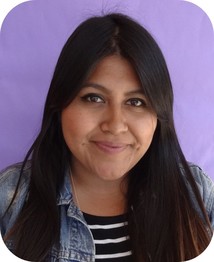
I began my career as a youth advocate in a residential setting for teens in the foster and juvenile system. It was actually my first job and I loved the challenges and joy that came with this experience. When I graduated college, I worked with college students in mentoring them and providing social support. Although working with college students was crucial to my personal and professional development, I had an eagerness to continue working with at-risk youth. I applied to Seneca and moved to San Francisco from Los Angeles in 2015. When I joined the Starr King team I was impressed with the integrity, passion, and joy of my colleagues. This has encouraged me to learn from every Senecan I meet. Prior to working with Seneca I knew I wanted to become a social worker so I applied to the embedded Seneca MSW@USC program and was accepted. I am currently in my third semester and have enjoyed the program thus far. It is very validating and rewarding to be in a field where I’m learning what my mind has always been so intrigued and curious about.
Fun Fact:
I visited San Francisco for the first time during my freshman year in college. I made a promise to myself that I would live and work in this amazing city, and serve youth in some capacity. I have not regretted that decision. The journey has been amazing.
What does your average day look like?
I wake up early to get some homework or reading done before work and usually have a cup of coffee before 8am. The first couple hours of my day are spent responding or sending emails and writing mental health notes. As the day continues, I support different students in different classrooms or staff the wellness center. I wrap up my work day by checking in with teachers or administrators or write more mental health notes. Depending on my day, I will go home and do some self-care before returning to my homework and readings.
Why do you do this work?
I do this work because I have a genuine passion and curiosity to empathize and care for people. My earliest memory of this was in daycare when my peers would cry because their caregivers dropped them off. I would comfort them by offering hugs and suggesting for us to play or color. Comforting others has been a long value of mine, and it only seemed appropriate that it would become my profession. As I’ve developed I have become more resilient in my own experiences as a woman of color, and the ways my family and I have been marginalized or vulnerable. This personal experience, and curiosity of others, is what encourages me to advocate and stand in solidarity with others. I understand that our social institutions are broken, and I want to be a light of hope to families that have been hindered by social systems.
What hope do you have for the future of All-In?
My hope for All-In is that we would increase family, school personnel, and community engagement on behalf of our clients! I truly believe they are our biggest allies in ensuring our clients meet their goals. There are multiple barriers that get in the way of this relationship, and my hope is that All-In prioritizes this as we move forward!

 RSS Feed
RSS Feed